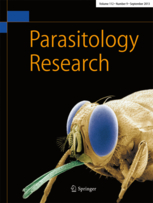 A journal has retracted a paper about a molecular diagnosis for leishmaniasis out of concern it could lead to incorrect clinical diagnoses.
A journal has retracted a paper about a molecular diagnosis for leishmaniasis out of concern it could lead to incorrect clinical diagnoses.
According to Parasitology Research, all data behind the figures in the main manuscript and supporting information are correct, but the authors’ misinterpretation of the data could lead doctors to diagnose patients incorrectly.
Let’s take a look at the retraction notice, which tells us a bit more about the nature of the problem:
The article “Molecular diagnosis of leishmaniasis at the subgenus and species level” published online 5 November 2013 in Parasitology Research, DOI 10.1007/s00436-013-3663-1, has been retracted by the publisher and the journal Editors Heinz Mehlhorn and Bill Chobotar. The retraction has been agreed to due to the fact that although all the data reported in the figures of the main manuscript and in the supporting information are correct, incorrect clinical diagnoses could be made from the way the data are interpreted currently in the paper. Cross testing a newly designed assay against positive clinical samples alone is insufficient evidence of its specificity. This conclusion can be traced back to a misinterpretation of experimental data in the main manuscript, for which the authors accept full responsibility. The online version of this article contains the full text of the retracted article as electronic supplementary material.
The 2013 paper has not yet been cited, according to Thomson Reuters Web of Science.
Heinz Melhorn, co-editor-in-chief of the journal, referred to us Springer, the journal’s publisher. A Springer spokesperson told us the issue came to light when Public Health Ontario Laboratories alerted the editors of the journal. The spokesperson explained:
If the authors had followed the internal reviewing procedures of the institute where the research was carried out (Public Health Ontario Laboratories), the issues in the paper would have been identified. Consequently, the paper would not have been approved for submission for publication in a journal.
When asked if any patients may have been jeopardized by the incorrect analyses in the paper, the spokesperson added:
This is a hypothetical question, and could only be answered on the basis of assumed facts. The purpose of a retraction is to correct the academic literature. The authors, therefore, were explicitly invited to submit a corrected article, which, if published, would make an important contribution to the scientific literature.
We’ve reached out to the paper’s first and corresponding author, Krishna Khairnar, who is based at the National Environmental Engineering and Research Institute in India. We’ll update the post with anything else we learn.
Like Retraction Watch? Consider making a tax-deductible contribution to support our growth. You can also follow us on Twitter, like us on Facebook, add us to your RSS reader, sign up on our homepage for an email every time there’s a new post, or subscribe to our new daily digest. Click here to review our Comments Policy. For a sneak peek at what we’re working on, click here.